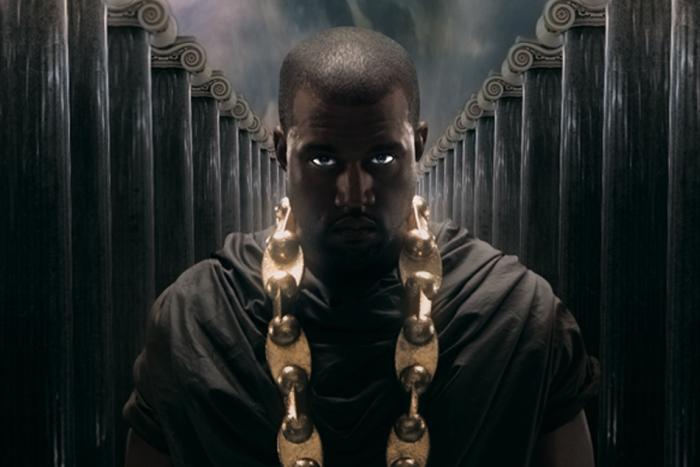Each of us is an unreliable eyewitness when it comes to our own lives. We rewrite events as they happen to us, bending details to suit the moment's outlook, shellacking so-called fact in distorting layers of interpretation. This isn’t self-deception, but a rare universal privilege: the instinct to rewrite history is a useful survival mechanism. Our myriad memory biases (Wikipedia lists over 50) offer alternate ways in which we can make sense of ourselves in spite of the million daily contradictions. It's thanks to our minds' built-in escape hatches that no two people experience the same event as the same event, even if both parties happened to be subject to the same set of facts. But, as Shani Mootoo's Moving Forward Sideways Like a Crab suggests, this doesn't make our individual truths any less true. Instead, our biases make us perpetual editors of our lives' narration. In the process, we seek role models—in part, to lend credence to our truths, and in part to show us how to achieve them.
Mootoo, a writer-visual artist-filmmaker whose debut novel Cereus Blooms at Night was a 1996 Giller Award finalist, is adept at knitting together unwieldy themes with an eye for perspective. In her new book sexual politics, the limitations of masculinity, the perpetual uncertainty engrained in the immigrant experience and postcolonial alienation quietly underpin visceral depictions of West Indian flora measured against the stoic urban confines of Toronto's east end. (In Mootoo's dual world, a philodendron is “as large as a living room in a downtown Toronto apartment.” A dracaena tree reaches “as high as a billboard.”)
“I decided that I really wanted to try to write about something that I had to stretch myself to do,” says Mootoo. “And believe it or not, what I chose was a Toronto winter.” Mootoo, herself raised in Trinidad but a Toronto resident for the past 35 years, envisioned a person walking through a snowstorm. But she wasn't sure yet whether it would be a man or a woman, or what the purpose of the snow walk would be.
It was around the time that this image was beginning to materialize that Mootoo attended the 60th birthday party of a trans man. It was a joyful celebration until about halfway through the evening, when a young man entered the room. To the crowd's discomfort, he began distressfully addressing the celebrant as “Mom.”
“I remember thinking to myself, 'Oh just stop it, get over it, come on,'” recalls Mootoo. “It took me a good 20 or so minutes watching him, realizing, you know what? This man has a story, and it's a hard one for him.”
Moving Forward Sideways Like a Crab is told mostly by Jonathan, an introspective Toronto-bred man raised by two women. His biological mother, an emotionally absent English writer named India, chides him for being “too sensitive,” a judgment he shares with his other mother, the Trinidadian painter, Sid, who disappears without a trace when Jonathan turns ten. The sudden parental absence leaves Jonathan feeling simultaneously abandoned and flummoxed; he holds hope that, surely, there must have been a reason for her departure and subsequent silence.
“It took me a good 20 or so minutes watching him, realizing, you know what? This man has a story, and it's a hard one for him.”
After years of unsuccessful attempts to locate his missing parent, an adult Jonathan finds Sid—now Sydney, a man—living a life of comfortable hermitude in his native Trinidad. In the nine years that follow, Jonathan travels back and forth between his Toronto home and Sydney's West Indian estate where he attempts to recast the mother figure of his past into a paternal figure of present while coming to terms with her/his sudden departure, and understanding the reconfiguration of identity that took place in between. A writer, Jonathan takes on the project of telling Sydney's story as narrated through diaries, letters, and Sydney's own mouth. In the process, he finds romantic partnership and purpose, and stays in Trinidad for good.
The son at the birthday party Mootoo attended informed the character of Jonathan, and the snow walker would become Sydney; indeed, when Sydney begins telling Jonathan his life's story, the snowstorm is where he opens. Winter becomes a stand-in for the necessary resilience of the transplant from the global south, or as Sydney puts it: “a test indeed to the mettle of anyone who arrives [in Canada] from a tropical country; indeed anyone from anywhere who lands there with more determination than credentials.”
As a reader raised in northern climes (and at least superficially passing as a member of its dominant culture) I'd barely noticed the snowstorm; it was sun-drenched Trinidad that reeled me in. The oppressive white-outs of Great Lakes Region winters, like the minutiae of a person's commute, are a given. Banality is borne of a certain acceptance, and it turns out my reading wasn't unique.
“There are almost two distinct readers for the book,” Mootoo muses. “It's interesting to me that the Canadian readers aren't drawn to the snow story but go straight to the lush, tropical. And then the Trinidadian reviewers went directly to the snow landscape. I think that a person who's reading it from a place like Trinidad recognizes the almost-impossibility of a Canadian winter. The life one lives here is so different from the warm, rich, familial life back there.”
The novel itself is fixated on the unknowability of a story's multiple angles, and unobtrusively flirts with metanarrative; the reader isn't tasked with too many strands to untangle, but it's clear that there is more to each account than meets the eye. It's partly Sydney's story as interpreted by Jonathan, but it's also Jonathan's story, patched together through his reabsorption of the parental figure he lost, then found. He must revise the abandoned child role as the gradually unveiling context renders that version of his story too simple—and maybe unfair to Sydney's unending journey toward a semblance of self-truth, which is so entwined with his own.
Moving Sideways deals slyly in the matter of role model-seeking, both Jonathan's and Sydney's. There is a universality in the effort of forged family, the mentor-companions we adopt in order to reassure ourselves that our life's trajectory isn't aimless. (They're equal parts rubric and back-pat, like a self-help book or a Buzzfeed quiz personified. We may be moving forward sideways, but following somebody's lead ensures there's some measurable progress.) Sydney's role model comes in the form of a tragically-fated best friend, Zain, an improbable fairy godmother of sorts whose demise becomes, for Sydney, a lifelong source of guilt. It's Zain who facilitates Sydney's transition, one of the first on the island. In turn, Sydney becomes a mentor for the small community of transpeople who follow in his wake. While Sydney starts out as his guide in the process, eventually circumstances call for someone new—in this case, a woman named Anta.
The oppressive white-outs of Great Lakes Region winters, like the minutiae of a person's commute, are a given. Banality is borne of a certain acceptance, and it turns out my reading wasn't unique.
As Mootoo sees it, the preoccupation with uncovering one's authentic self rarely rests. For the person who must navigate life outside of the mainstream, penetrating those truths is all the more taxing. It's why Mootoo says she chose to tell Sydney's story through Jonathan, to amplify a muffled voice through one more culturally dominant, positioning the two on a level plane. Yet, she insists that Jonathan—the straight, cisgendered yet self-seeking white guy—also embodies the “other,” a person who doesn't adhere to the standards of living their circumstances have assigned them.
“He will always be an other,” says Mootoo. “There are always these two worlds, trying to come together: the world of the Canadian sensibility, and the world of in this case, the Trinidadian,” she says. “One is outside of Canada, one is inside of Canada. Always trying to meet somewhere. Immigrant stories here in Canada are often about the immigrant coming from outside. But Jonathan is almost bicultural.” Coming into his dual identity allows Jonathan, eventually, to find partnership and direction. Convoluted, he's been made whole.
She adds: “It's like we're these little accidents of evolution and we sort of bop around with these big brains and make a lot of fuss and then die. Who are we? Who is the individual and how can the individual exist when there are all these other constructs around? I'm trying to find these truths, and as soon as you come to an answer that answer points to a lot of questions. You can go off on them and never ever find a truth.”
If landscape forms the story's shape, the title's namesake crabs are its daemon. Watching their inefficient scuttling along the seashore—as much a metaphor for the creative process as for the shakiness of modelling one's own life—provides Jonathan with a pivotal signifier. By observing their constant detours, he comes to grips with his final destination.






